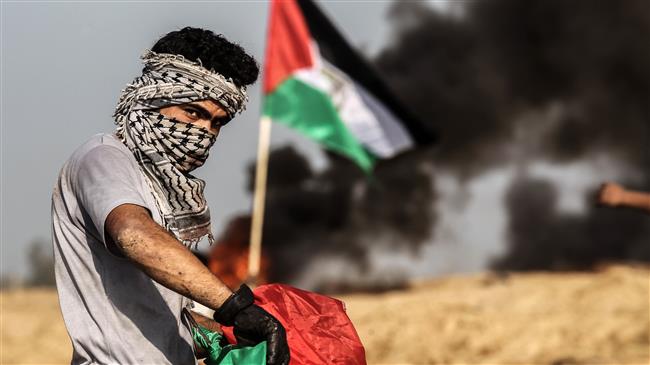Palestine
Israeli forces clash with Palestinian protesters in Gaza


Palestinians in the besieged Gaza Strip have held another protest rally against US president Donald Trump’s decision to recognize Jerusalem al-Quds as Israel’s capital. Israeli forces clashed with the protesters, injuring a number of them. Press TV’s correspondent Ashraf Shannon has more details in the following report from Gaza.







